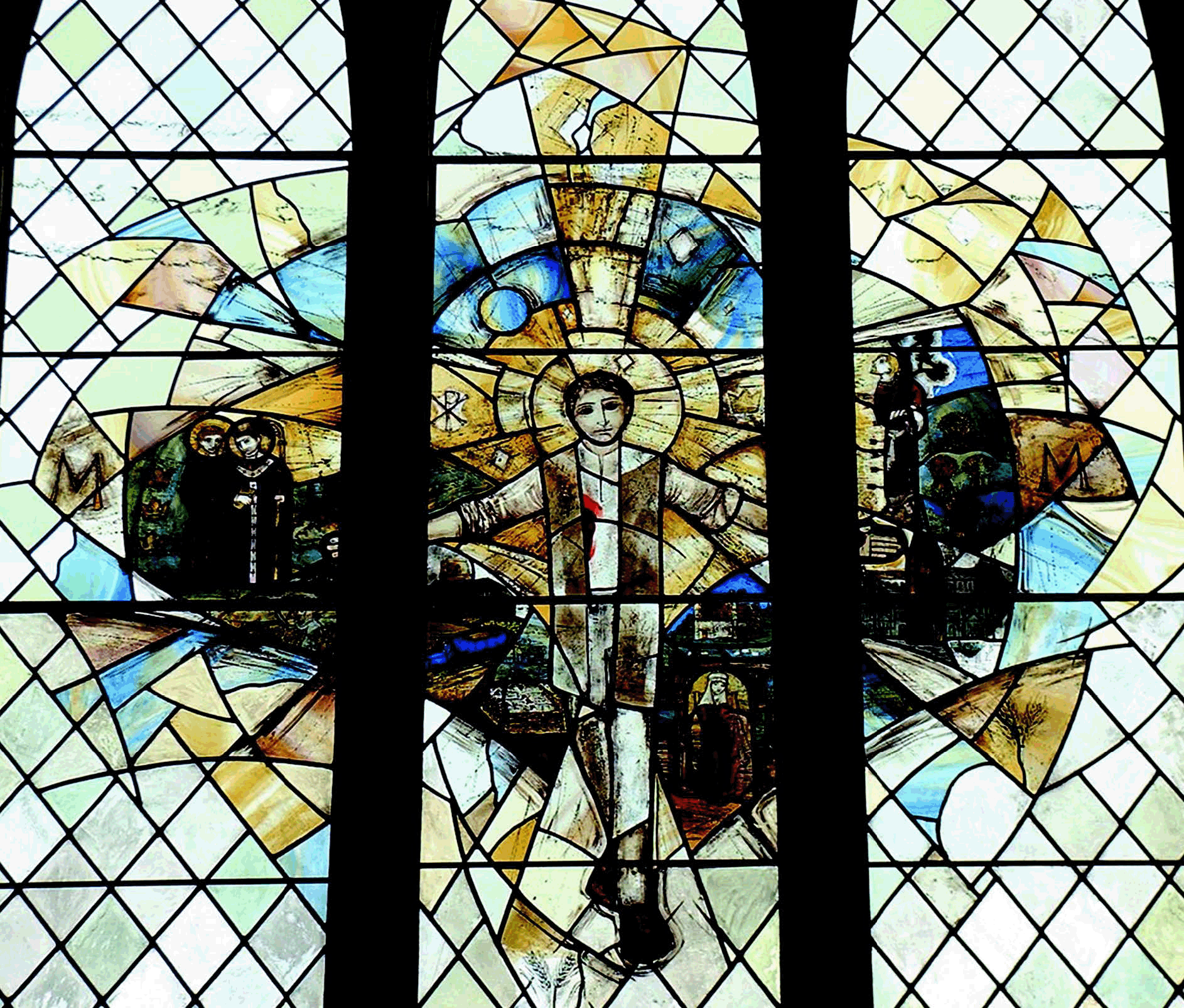Reconciling Paul
Lesson Four

Carrying in Our Bodies Jesus’ Acts of Healing, Reconciliation, and Love
Scripture: 2 Corinthians 4:7–5:10
Key Idea: Lesson four focuses on Paul’s understanding of how the community of faith, the “body of believers,” carries Jesus’ death within it by continuing acts of healing, reconciliation, and love.
Here’s a confession for you: I’ve had a very difficult time navigating my way through the focus text of lesson four (2 Corinthians 4:7–5:10). That’s why I was spectacularly relieved to read Elizabeth Hinson-Hasty’s introductory remarks where she writes, “The passage you will study in this lesson offers significant challenges for us as we seek to interpret its meaning” (page 36; page 59, large print edition). Indeed! At least this clay jar is not alone in her perplexedness!
As I read 2 Corinthians 4:7, I consider the ordinary/extraordinary clay jar and the community of faith, individually and collectively: “But we have this treasure in clay jars so that it may be made clear that this extraordinary power belongs to God and does not come from us.” (2 Corinthians 4:7)
So let me start by considering clay jars. Even far-flung museums display clay vessels from various regions and eras because they’re fairly common as these things go. These ancient artifacts on display are generally chipped, cracked and weathered. But in their heydey, these ordinary yet extraordinary earthenware vessels held the stuff of life: water, oil, olives, and even precious scrolls. Common? Yes. Practical? Yes. Lovely? Yes. The best of these vessels were more than pretty bits of formed clay; the best carried their treasured contents securely. And thirsty travelers would undoubtedly find beautiful the jar that—although chipped—carried clean fresh water.
One common theme throughout scripture is the way that God turns our understanding of things upside down! As noted in Irene Pak’s Suggestions for Leaders (page 43 or page 70 in the large print edition), “The power of God is subversive. The weak are made strong and the strong are made weak.” And truly what could be more triumphant than a God who chose ordinary people—earthenware vessels—not just golden chalices (princes and czarinas)—to embody God’s nature into the world? [I am reminded of a scene in one of the Indiana Jones movies, “Indiana Jones and the Last Crusade,” where the protagonist must choose the Holy Grail (the cup of Christ) from among many gleaming chalices or, as the story goes, face certain demise. Thankfully, Indiana Jones must have been a regular attendee of church school because he looked past the glitter and instinctively knew to choose the humblest of chalices!]
N.T. Wright, in his book, Paul, for Everyone, recounts the story of Sir Oliver Franks, an Oxford professor of much distinction who, after World War II, held the important post of British ambassador to the United States. When Sir Franks had to communicate something “utterly top secret,” in these pre-encrypted–email days, he chose to send the message in a regular envelope through regular postal channels. Wright links Franks’s decision to entrust his most important messages in the most ordinary vessel with the Pauline scriptures. He writes, “What Paul is saying is that there is no chance of anyone confusing the content of the envelope with the very ordinary, unremarkable envelope itself. The messenger is not important; what matters, vitally and urgently, is the message. God’s double bluff, as it were, to deceive the powers of the world, is like the Ambassador’s double bluff to deceive potential enemy agents.” (N.T. Wright, Paul, for Everyone: 2 Corinthians, Louisville, KY: Westminster John Knox, 2003, pages 43 and 44)
—
I like to ponder my thoughts over a day or two. And I’ve been musing over Elizabeth’s words, “But what if the weak, frail, and human body is not an individual body, but rather a larger body—a community of believers?” (page 37, 59 in the large print). I think it is a fairly fathomable to consider individual believers (“clay jars”) as the carriers of God’s love (“treasure”) in the world. But communities? As I mused over this understanding of community in this way, I decided to check my incoming email and that’s when I opened a newly arrived e-newsletter from the PW Synod of Alaska-Northwest, The Pipeline. As I read the words from moderator Cheryl Murchie, the idea of both individuals and communities choosing together to be God’s vessels into the world became much more real to me: “Greeting you in Christian love. The strength of PW in our Synod depends on all of us working together, caring and praying for one another, serving continually in our home churches and extending Christ’s love in the communities in which we live. Let me offer my encouragement to keep on with your Bible study & prayer groups, craft & sewing circles, meeting together for lunch or tea time, and all your mission outreach efforts according to our PW Purpose.”
Cheryl, thank you for bringing us full circle to the Purpose. I read it anew:
Forgiven and free by God in Jesus Christ, and empowered by the Holy Spirit, we commit ourselves:
- to nurture our faith through prayer and Bible study,
- to support the mission of the church worldwide,
- to work for justice and peace, and
- to build an inclusive, caring community of women that strengthens the Presbyterian Church (U.S.A.) and witnesses to the promise of God’s kingdom.
Until next time . . . (I’ll return with blog 5!)
—Carissa Herold
